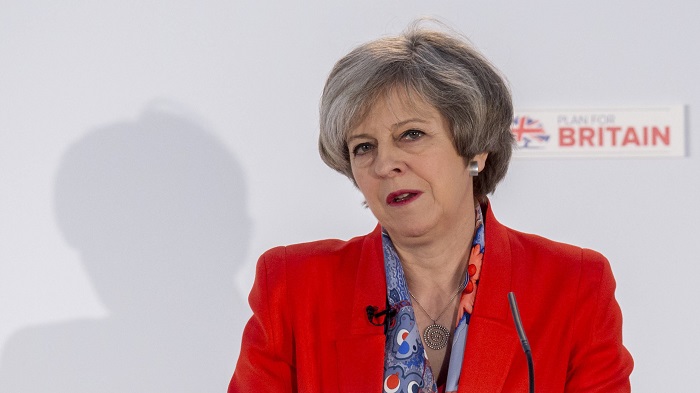May proposes 2-year "implementation period" after Brexit
Published : 23 Sep 2017, 01:04
Updated : 23 Sep 2017, 01:06
In a speech in Italy's Florence on Friday, British Prime Minister Theresa May proposed a two-year "period of implementation" after Britain leaves the European Union.
Britain will officially no longer be a part of the EU as of midnight on March 29, 2019. This means May is suggesting Britain would continue to stay in the EU single market and customs union for another two years after that, i.e. until 2021.
"During the implementation period, access to one another's market should continue on current terms, and Britain should also continue to take part in existing security measures," May said.
"We would want to make an ongoing contribution to pay our fair share of the costs involved," she added. "The UK will honor financial commitments made during our membership." The implementation period would give people and businesses time to adjust to the upcoming "new regime", May explained.
On the economic front, May suggested it would not be necessary to negotiate a new trade deal with the EU "from scratch". "No need to impose tariffs where there are none now," she said. "We will do everything we can to avoid friction at the border."
Speaking to Italian lawmakers in Rome on Thursday, EU Brexit negotiatior Michel Barnier said Britain cannot expect in future to have a trade deal with all the benefits and none of the obligations of being in the EU. "The future trade deal with the United Kingdom will be particular, as it will be less about building convergence, and more about controlling future divergence," said Barnier.
The EU diplomat also said negotiations were dragging on the issue of the rights of EU citizens living in Britain. He said Britain must guarantee they won't be penalized by Brexit.
On Friday in Florence, May, the British conservative leader, reassured the public that EU citizens living and working in Britain, including 600,000 Italians, will have the same rights after Brexit as they did before, and that Britain is willing to have any disputes resolved by the European Court of Justice. "We want you to stay, we value you," May said. "It remains one my first goals in this negotiations, to ensure you can carry on living your lives as before."
"I'm clear the guarantee I'm giving on your rights is real," said May. "When there is uncertainty around underlying EU law, I want the UK courts to be able to take into account the judgment in the European Court of Justice with a view to ensuring consistent interpretation. On this basis, I hope our teams can reach firm agreement quickly."
May also said Britain wants to remain deeply engaged with the EU on the security front. Mass migration, terrorism and climate change are "issues we can only solve in partnership," she said. Therefore "the quality of our cooperation" must be maintained "in what are life and death matters."
"Our people face the same threats and we share the same values," said May, calling for a new British-EU treaty on security, law enforcement and criminal justice cooperation. "We may be leaving the European Union, but we are not leaving Europe," she said. However, she claimed that "throughout its membership, the UK has never totally felt at home being in the European Union."
Outside in Piazza Santa Maria Novella, pro-EU British citizens staged a small protest. Photos published by ANSA news agency showed the protesters wrapped in British and EU flags and holding up signs saying things like: "British and a proud European".
The British people voted by a slim majority to leave the EU in a June 2016 referendum. The Treaty on European Union foresees a period of two years to negotiate a country's withdrawal. Three rounds of Brexit negotiations have been conducted so far.


